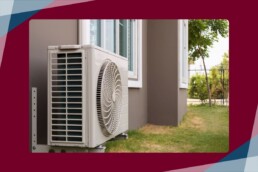HVAC Insurance: What Home & Business Owners Need to Know
Most homeowner policies will have some coverage for heating, ventilation, and air condition units. If they are damaged in a fire, for example, they would be covered.
However, if your HVAC system was to stop working, due to general wear and tear or accidental damage, your insurance company might not pay the claim. It is important to understand more about HVAC insurance works for homeowners and business owners.
Homeowners HVAC Insurance
When will my homeowner insurance cover my HVAC unit?
One of the most common homeowner insurance policies will provide a wider spectrum of coverage. These protect your home and its content from approx—16 types of disasters.
HVAC units are generally covered in homeowner insurance if they are damaged by high winds, fires, theft, or falling trees.
However, if your HVAC was struck by lightning and all the electric components were damaged, you likely wouldn’t be covered.
When will my homeowner’s insurance not cover my HVAC unit?
HVAC systems are hard-working, yet most homeowner insurance policies will not cover your HVAC unit from damage caused by general wear and tear. Your standard homeowners’ insurance will not cover poor maintenance or accidental damage, either.
What does this mean for you? If your HVAC starts having issues after being used for ten years and stops working, you probably won’t see a penny.
For example, if you are cleaning your HVAC system, or drop a component, you won’t see anything for a claim there either.
It is important that you read through your insurance policy a few times to see what is and isn’t covered. Soden Insurance Agency can make sure you understand what is and is not included in your policy.
How Would I File an HVAC Insurance Claim?
You will need to collect relevant information in order to make an insurance claim for your HVAC system.
Make a record of your unit’s serial number and model number. Take photos of the visible damage, and if there was foul play, then ensure you have a copy of the police report.
Once you have gathered everything you need, you will need to contact your agent or insurance provider. They will ask some questions about your unit and if your policy covers it or not.
They are likely to send an adjuster to your home to look at the damage and assess the cost of replacement or repairing the HVAC system.
If your homeowners insurance covers your HVAC unit, you will likely have to pay a deductible. Unfortunately, the replacement or repair may be less than your policies deductible – so you may prefer to pay out-of-pocket anyway.
Those are just a few of the reasons that HVAC insurance can be invaluable when it comes to protecting your HVAC and ensuring that you are never out of pocket.
The Bottom Line for Homeowners
When HVAC systems break, they can be costly to repair or replace, so it is important to get HVAC insurance that will cover your HVAC system properly.
Make sure you have regular checks, ensure the filter is changed regularly, and follow the manufacturer’s guides to improve your HVAC system’s lifespan.
HVAC Insurance for HVAC Business Owners
Establishing and running an HVAC business successfully is a lot of hard work. Understanding a number of license requirements, the technical side of installation or HVAC, repairs, and the laws.
It is essential that you, as an HVAC business, have the right HVAC business insurance to protect your business. HVAC contract business insurance usually has a wide range of other benefits, and can keep your business afloat in case of any unforeseen incidents.
You will need to decide how much HVAC insurance your business needs, but Soden Insurance Agency can help you make the right decisions. Here is what HVAC insurance policies cover:
- Property damage
- Employee wages after a work-related injury
- Vehicles and equipment
- Unintentional faulty workmanship
- Legal fees
- Accidental injuries
Workplace accidents and injuries can leave a company bankrupt, so getting HVAC business insurance will help to protect you and your business.
How does HVAC business insurance and HVAC homeowner insurance differ?
HVAC coverage for businesses is very different from residential HVAC insurance.
HVAC insurance for businesses will cover you, your staff, damage related costs, and any issues that arise after you have finished the HVAC repair, replacement, or installation.
HVAC insurance for homeowners only covers a select range of HVAC issues related to the homeowner.
Popular HVAC Business Insurance Policies
There are several different HVAC contractor insurance policies available. You must understand which will suit your company best.
Commercial Auto Insurance
Your HVAC company will likely have a range of vehicles for you and your staff. If one of your employees was in a road traffic accident or someone steals a van filled with tools, you need to know that you are covered.
Commercial auto insurance for HVAC will cover collision damage to another vehicle, property damage caused in the accident, theft, or vandalism to your company vehicles and medical bills that arise from a third-party injury.
Workers’ Compensation
Workers’ compensation insurance will pay the medical bills and payroll costs for an employee who is injured while working for your HVAC company.
Commercial General Liability Insurance
This insurance will cover accidental injuries and property damage relating to your work as an HVAC contractor.
This will include HVAC installation problems, moisture damage, repair costs for the customer’s home or belongings, and physical injuries sustained on the job site.
Commercial Property Insurance
Taking out property insurance for your HVAC company will protect your office space, equipment, tools, storage, and inventory.
Commercial property insurance will cover the value of the business equipment and the building that is destroyed or damaged. Typically this would be by fire, another disaster, or theft.
BOP (Business Owners Policy)
A business owner’s policy will cover a wide range of insurance needs. In order for your business to be eligible for a BOP for your HVAC company, you need to have less than 100 employees and have less than $1 million annual revenue.
A BOP will include a combination of personal injury or damage caused on the job—repairs and equipment loss at the company property and general liability too.
In general, a BOP might not give you the coverage that your company needs, and you may have to purchase a range of separate policies that will cover your HVAC business needs.
Surety Bonds
While this is not technically insurance for your HVAC company, a surety bond provides a level of insurance for your customers that the HVAC work your company performs will meet all of the professional construction standards.
Along with meeting all of the local and state regulations, a surety bond must be repaid if a customer is successful in their claim. Several states require a minimum surety bond for HVAC contractors.
Think of surety bonds like the gift of peace of mind for your customers. The bond guarantees your work.
Equipment and Inland Marine Coverage
You need to protect the tools and equipment that you use for work.
They are the essential component in your heating and air condition work. Commercial insurance for A/C units and other equipment can be added to liability insurance or BOP.
It will cover small tools, equipment less than five years old, mobile equipment, however, it does not cover damage from wear and tear.
If you regularly ship or move high-value products and equipment, then you should consider investing in inland marine insurance.
Commercial General Liability Insurance
HVAC liability insurance covers property damage and accidental injuries that are related to your work as an HVAC contractor.
Many places require HVAC coverage verifications for general liability insurance to obtain an HVAC contractor license. This will be when signing a commercial lease or a customer contract.
HVAC general liability covers the following:
- Physical injuries sustained on the job site
- HVAC installation problems
- Moisture damage caused by and HVAC work
- Repair costs for property damage to a customer’s belongings or home
HVAC liability insurance will protect your business if your company’s work happens to cause damage to the property or physical injuries to customers.
Umbrella Insurance Policy
If a liability incident or judgment exceeds your HVAC liability insurance limits, an umbrella liability insurance policy will give you some assurance that you can cover those additional costs.
An umbrella liability insurance policy will serve as a backup policy that provides extra coverage and protection for your HVAC business.
The umbrella liability insurance policy for your HVAC company will typically give you extra cover for commercial auto liability insurance, general liability insurance, insurance, and employer liability insurance (and this often includes workers’ compensation).
An umbrella policy will not usually cover claims that are related to commercial property insurance or professional liability insurance.
HVAC Insurance Costs
How much your HVAC business insurance costs will be, may total anywhere between $350 for a small start-up to $10,000+ for larder HVAC businesses. No two HVAC businesses are the same, which means quotes will vary.
Your HVAC business insurance will depend on a few factors:
- Number of employees
- Technical and business experience
- Types of HVAC insurance policies that you invest in
- Company Revenue
- Location and size of your service area
HVAC is generally regarded as a high-risk construction profession as you work on a customer’s property. The average cost of a small HVAC business will be more than an average start-up cost.
Finding The Best HVAC Insurance Policy Provider
It is important that you spend time finding the right HVAC business insurance providers for your unique business journey. You should ensure that your provider has plenty of positive reviews.
As well as the following:
- Do they have experience with HVAC contractor’s insurance?
- Do they suggest a one-size-fits-all policy, or have they conducted an analysis of your HVAC business needs?
- Are they responsive and friendly to your questions?
Soden Insurance Agency has an outstanding reputation for its ability to surpass expectations when it comes to the best HVAC business insurance, and beyond.
Is HVAC Insurance Different To Other Contractor Insurance?
Many people incorrectly assume that HVAC insurance is the same as the contractor insurance. General contractor’s insurance covers the following:
- Landscaping
- Roofing
- Electricity
- Construction
- Carpentry
- And similar careers
HVAC insurance is designed to provide cover for contractors that work with heating, ventilation, refrigeration, and air conditioning.
Benefits of HVAC Business Insurance
One of the biggest benefits of having HVAC insurance for your business is that you are covered should there be any mistakes or accidents.
However, there is also a range of other benefits HVAC businesses can benefit from when it comes to their insurance.
Recommendations
There are times where giving recommendations can be risky. If you often give off the cuff recommendations, they can land you in hot water should anything go wrong.
If your HVAC business insurance policy includes E&O, errors and omissions, these will have you covered.
Business Growth
It is very difficult to grow your business if you aren’t allowed to pitch for larger projects because you don’t have the right insurance coverage levels.
By displaying you have the right insurance and are preparing for any size project, you can pitch with confidence.
Protects Business Investment
Alongside the right record-keeping, great staff, and a good reputation, HVAC business insurance protects your business investments.
Your tools, vehicles, and premises all cost money, that initial layout is at risk if you decide to skip HVAC business insurance.
It also shows that if you are spending time and money training employees on specific HVAC systems and other HVAC related qualifications and licenses, one of them had an accident.
You’d want to ensure that you, as a business, do everything you can to look after them. HVAC workers’ compensation will allow you to do that.
HVAC insurance for your home will give you peace of mind that no matter the weather, your HVAC needs are under controls, while HVAC insurance for businesses can protect their investments, employees, and tools.
HVAC insurance keeps your business cool when things hot up.
Related Articles
How to Navigate through Business Insurance Policies
Purchasing and managing business insurance in NJ is a big job. As a business owner, you’re responsible for understanding your risk and the coverages you need.…
What To Know When Buying Business Insurance in NJ
Business insurance helps companies in New Jersey protect their financial assets. Without this coverage, you would have to pay out-of-pocket for any damages or…


